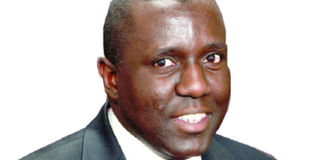Prime
How the weatherman forgot to forecast the weather in 2021

What you need to know:
- The weatherman after forecasting record rainfall in 2020-2025, after rains swelled river banks and the levels of the Lake Victoria riparian basin threatening dams, piers and landing sites, largely missed the mark in 2021 where rainfall totals were lower.
A few days ago, an article in the Observer did the rounds on social media asking for the whereabouts of the gold and coffee tycoons. This was on account of record gold exports and the high prices of coffee.
Both have shored up the local unit which closed the year stronger up in the Shs3,500 range to the dollar, compared to Shs3,950 in the first quarter of 2020. As the final months of 2021 dragged on, the market, all sorts of fortune seekers descended on the coffee market.
Uganda reported record exports for coffee in 2020, up to 6.3 million bags but found greatly diminished inventories in warehouses.
The weatherman after forecasting record rainfall in 2020-2025, after rains swelled river banks and the levels of the Lake Victoria riparian basin threatening dams, piers and landing sites, largely missed the mark in 2021 where rainfall totals were lower.
By year end the cautious weatherman was predicting an even earlier cut off in rainfall and the skies chose to shower the lake basin with sustained rainfall last seen in April 2021.
Uganda is refining gold serving as a favourite re-export destination for the DRC and countries as far away as Zimbabwe. Precious minerals are part of the currency of conflict in the vast DRC mineral rich dominated by gold and diamonds but also high value minerals like coltran.
Bank of Uganda in June 2021 reported that gold exports had hit $500 million more than coffee and did not retract their report after eyebrows were raised as to how much gold dust could have been dug out of the small gold mining operations scattered in greater Mubende, Ishaka-Bushenyi and Karamoja.
Coffee prices have been falling steadily since 2016. In 2021, the prices of robusta crested right at the mark where Arabica has been sitting in the 100 cents a pound range. Brazil exports 10 times Uganda’s exports but given rising global coffee consumption and speculation in commodities, even slight concerns about supply can produce remarkable changes in price.
Uganda’s coffee roadmap is targeting 20 million bags in 2025. This roadmap sought to duplicate Vietnam’s successful adoption of coffee as a cash crop in the last 25 years. While Uganda successfully more than doubled its exports from 2.5 million bags in the 2000-2010 period to 6.3 million bags at the end of 2021, Vietnam has also shot up to nearly 25 million bags. It is remarkable because Vietnam is also with a lot of conflict diversifying into other raw commodities like rubber. In the few years leading to 2022, Uganda’s robustas, favoured for the high caffeine content have, been blended into Vietnam’s lower flavoured but high volume robustas. Uganda’s robusta is fairly high altitude, but the recent re-engineering of coffee seedlings to make them dry coffee wilt resistant has made newer strains more dependent on rainfall. New vegetative methods of propagation, especially cuttings, produce higher yields but they also need more water. The coffee bush is a virtual industry requiring extra water at all stages, early-growth, flowering, fruiting, and even ripening. As Uganda was thumping its chest in 2021 on rosier coffee numbers in 2020, and presidential assent to the coffee law in September 2021, many farmers were staring at green beans which had failed to ripen on the trees. A dry spell between April and August also caused near panic as the dry stalk borer attacked coffee plants requiring expensive mitigation measures.
A coffee policy must incorporate the shortcomings of the weatherman. Sustained yields will depend on a concerted effort to distribute underground water resources through irrigation. Water rather than fair weather favours robusta more than Arabica. Robusta’s extensive root development is significant on water intakes. The recent layout of a national irrigation plan expressed a preference for short term crops like vegetables but was reluctant to invest in long term infrastructure for the coffee industry. The coffee policy must also enter an orderly intervention of soil amendments to boost soil fertility.
Both the fortune seekers looking for gold and coffee were disappointed. Even the coffee thieves who harvest ripe or green coffee berries nearly left empty handed as the weatherman had better ideas. 2021 also went into the records for low fish catch after government invested a lot of effort in extending the tax net in this sub-sector only for the fish to miraculously disappear. The 2021 budget speech had a tax on fish maw. New licences were introduced for landing sites, fishing operators. The economic headwinds were felt elsewhere. The much awaited MTN IPO didn’t deliver the jolt to the economy as expected. First day trading produced a limp not a spurt at the bourse.
Mr Ssemogerere is an Attorney-At-Law and an Advocate.




